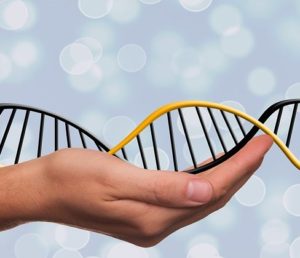Hormone imbalance is becoming more and more common, often at earlier ages as well. Young women and men in their teens and early 20s are being prescribed synthetic hormones. This is a delicate balance that if not addressed correctly can have lasting, chronic side effects.
Like most symptoms or deficiencies, it is the common practice to just “fill in” what you are missing. Yes, of course, you may need some supplementation to get back in balance, but have you or your Doctor questioned WHY you were deficient in the first place? WHY are things out of balance?
Out of whack hormones are just a symptom of something deeper going wrong, a blockage, a void, a pattern or chain reaction that has gone off track.
Here are 5 areas of concern that can affect your hormones that are often entirely overlooked when attempting to fix hormone imbalance. If you have been struggling I encourage you to work with a well-informed practitioner to address these concerns and make sure they are not holding you back from healing
1) Stress
 Stress can come from many different sources, whether it is internal stress, such as food sensitivities, infections, or inflammation; emotional stress from relationships, work or trauma; or physical stress from over-exercising or injury. All of these affect the stress hormones created inside your body.
Stress can come from many different sources, whether it is internal stress, such as food sensitivities, infections, or inflammation; emotional stress from relationships, work or trauma; or physical stress from over-exercising or injury. All of these affect the stress hormones created inside your body.
You must have the hormone cortisol to react to these stressors. It is an essential hormone that your body must create to handle these stressors and (attempt) to keep your body functioning and in balance.
Cortisol is best when it is used in the “fight or flight” scenario. It is there when you need it most. To advert your blood to your heart and lungs for quick pumping and energy, to stop less essential functions for the time being to handle the perceived threat and get you to safety. However, with the overload of stress these days our body are producing this hormone at high levels all the time, we are living in a constant “fight or flight” mindset.
Your sex hormones are often sacrificed in order to keep the production of cortisol up. This is often referred to as “pregnenolone steal.” pregnenolone is a hormone made from cholesterol that can go down the pathway to create DHEA, testosterone, and estrogens, and it also goes down a separate pathway to create progesterone that is converted into cortisol.
When we have a high demand of cortisol this pregnenolone gets shunted away from the sex hormone pathways to create cortisol, thus your DHEA, testosterone, estrogen and progesterone can plummet and create imbalance within your endocrine system. This may create slight imbalances or symptoms such as irregular cycles in women but still present within “normal” ranges on most labs. But if you continue to go at the same pace with the same stressors not being addressed, you will ultimately deplete pregnenolone stores and spiral into further distress. This can plummet your sex hormones as well as cortisol, which can lead to chronic fatigue and low libido, among many other symptoms. This can cause also interact with other systems causing them to crash such as thyroid function. Identifying and addressing these stressors can help your body repave those correct pathways and restore normal hormone patterns.
2) Blood Sugar
 Poor diet, eating habits, and chronic stress can cause blood sugar fluctuations. This constant up and down of high and low blood sugar is widely known to create insulin resistance and lead to Diabetes. But it also closely interacts with your hormonal system. It is common in women who have chronically elevated insulin levels to increase production of testosterone, this is often seen with PCOS.
Poor diet, eating habits, and chronic stress can cause blood sugar fluctuations. This constant up and down of high and low blood sugar is widely known to create insulin resistance and lead to Diabetes. But it also closely interacts with your hormonal system. It is common in women who have chronically elevated insulin levels to increase production of testosterone, this is often seen with PCOS.
In men, elevated blood sugar can increase estrogen levels. It can also cause aromatization (conversion) of testosterone into estrogen. This is one of the dangers of simply supplementing a man with testosterone, as it could be leading to further imbalance and rocketing estrogen levels.
These levels need to be in a delicate synergy to work correctly, blood sugar and insulin levels are a crucial part of this balance. With the rollercoaster of blood sugar and the overdrive of cortisol, our bodies may naturally crave more sugar and carbohydrates to try to sustain energy. However, we know this only perpetuates the highs and lows. If you monitor your blood glucose levels and find you do not maintain blood sugar well, you need to work to establish healthy eating patterns that fit with your lifestyle and your body's needs. Focus on the foundations of healthy eating, prioritizing healthy fats and proteins to sustain blood sugar throughout the day.
3) Digestion
 With poor digestion, a whole host of problems can arise affecting hormone balance. Chronic constipation is often tied to estrogen dominance and hormone imbalances. You have to eventually get rid of these hormones created, so where do a lot of them go? They get metabolized by your liver and excreted through your stool. With constipation, the waste that is meant to be leaving your body is sitting in your intestines, allowing the estrogens and toxins to be reabsorbed and circulated. This can create an elevated level of estrogens in your body.
With poor digestion, a whole host of problems can arise affecting hormone balance. Chronic constipation is often tied to estrogen dominance and hormone imbalances. You have to eventually get rid of these hormones created, so where do a lot of them go? They get metabolized by your liver and excreted through your stool. With constipation, the waste that is meant to be leaving your body is sitting in your intestines, allowing the estrogens and toxins to be reabsorbed and circulated. This can create an elevated level of estrogens in your body.
Poor digestion can come from many causes such as poor diet, inadequate movement, food sensitivities, gut inflammation, poor liver function, and infections. Candida, an opportunistic yeast infection, has been shown to be linked to worsened PMS symptoms and estrogen dominance in females as well as an increase in estrogen and drop in testosterone levels in males.
Supporting your healthy gut bacteria through a low-inflammatory diet, occasional healthy detoxes to support your liver and gut function and making sure you have regular elimination can help your hormones metabolize correctly and maintain proper balance.
4) Genetics
 Having certain genetics may predispose you to having issues maintaining hormone balance. I have spoken about the MTHFr enzyme, its genetic variants (SNPs), and other genetic mutations that can cause a host of issues throughout the body through inefficient methylation processes. Methylation is needed in over 250 different reactions in the body, some of those include metabolism of key nutrients needed for hormone production and hormone metabolism.
Having certain genetics may predispose you to having issues maintaining hormone balance. I have spoken about the MTHFr enzyme, its genetic variants (SNPs), and other genetic mutations that can cause a host of issues throughout the body through inefficient methylation processes. Methylation is needed in over 250 different reactions in the body, some of those include metabolism of key nutrients needed for hormone production and hormone metabolism.
Other genes such as the COMT pathway, affect the metabolism of estrogen, and if not properly supported can cause strong PMS symptoms, cancers, and mood imbalance. Having genetic variants in both the COMT and MAO pathways can both affect your testosterone and estrogen levels, but your testosterone and estrogen levels can affect how those genes are expressed as well. Having an improper balance and inefficient support can lead men into having symptoms such as aggressive or addictive behaviors and women into common symptoms such as excess worry and anxiety to try to maintain a proper balance.
Getting your genetics tested to identify these areas you may be predisposed to having trouble with can help you prevent disease, symptoms, and chronic hormone imbalance.
5) Medications & Outside Sources
 You may be aware of how you are eating but are you thinking about what else you are putting in or on your body?
You may be aware of how you are eating but are you thinking about what else you are putting in or on your body?
Outside sources of hormones and xenohormones (hormone-acting chemicals) can come into your body from non-organic meat and dairy products, the makeup products you are using, household products, soaps, plastic containers and packaging, and drinking water. When you become aware of your surroundings you may notice a wide range of scary chemicals that you are coming into contact with and that are being absorbed by your body.
Obviously, hormonal medications can alter your hormone balance. Birth control and hormone replacements are commonplace these days can cause many side effects and long-term effects on your natural hormone production. But another part of this to consider is if your partner is using these products. Hormonal creams, such as synthetic and bio-identical progesterone can be transferred to the other partner if the woman rubs it on her body and then touches her partner with the same body part before fully absorbed.
All prescription medications come with side effects. When you are altering a part of the body you can not simply target that exact mechanism, the whole body is connected remember!? Some medications are not even fully understood, such as anti-depressants. The entire way they affect and work within the body are unknown. Common medications such as SSRI’s, SNRI’s, sedatives used for anti-anxiety purposes, Ritalin, other psychoactive drugs, as well as street drugs can have serious side effects such as low libido, sleep disturbances, worsening mood imbalance, impotency, heavy metal toxicity and other effects that may disrupt or worsen hormone patterns, as well mimic effects of imbalance hormones.
It may sound like a big task, and may take time, but be aware of everything you are putting in and on your body that may be affecting your hormonal status and holding you back from healing. For safe products to use please check out www.
EWG.org
Hormone imbalance can be slight disturbances or can have traumatic effects on your daily life. It is important to take control of your health both to heal from these issues as well as prevent them from ever occurring.
With thorough investigation into your body, you can work to identify and correct what is affecting your hormonal system and finally live a life in balance!